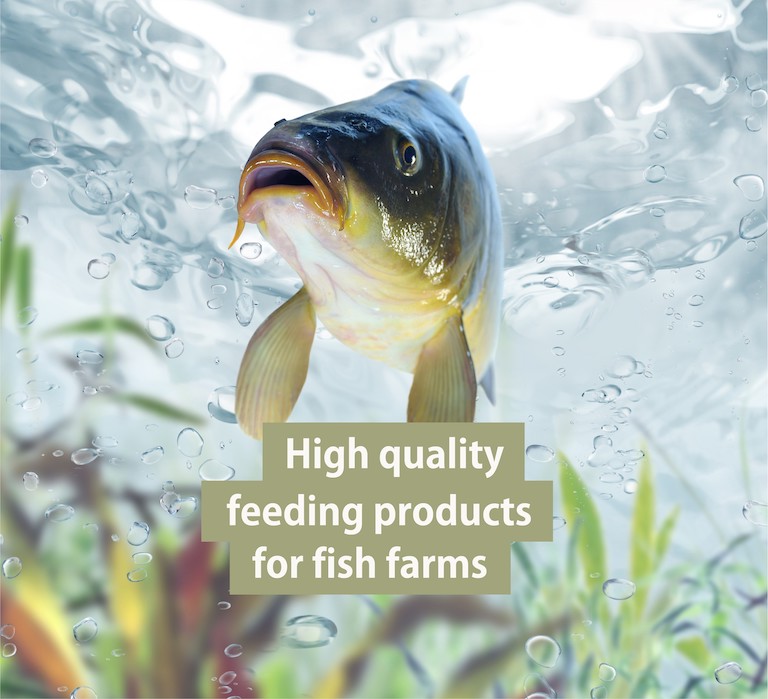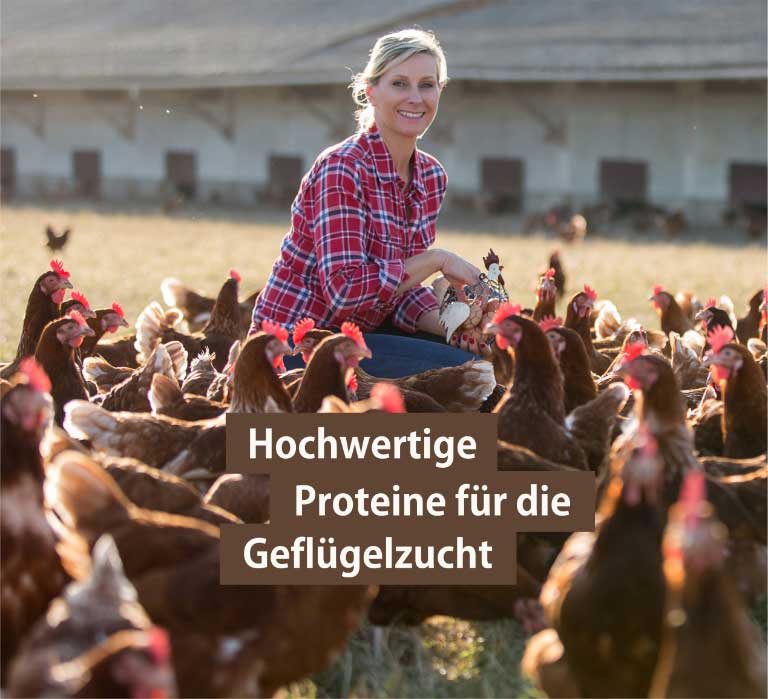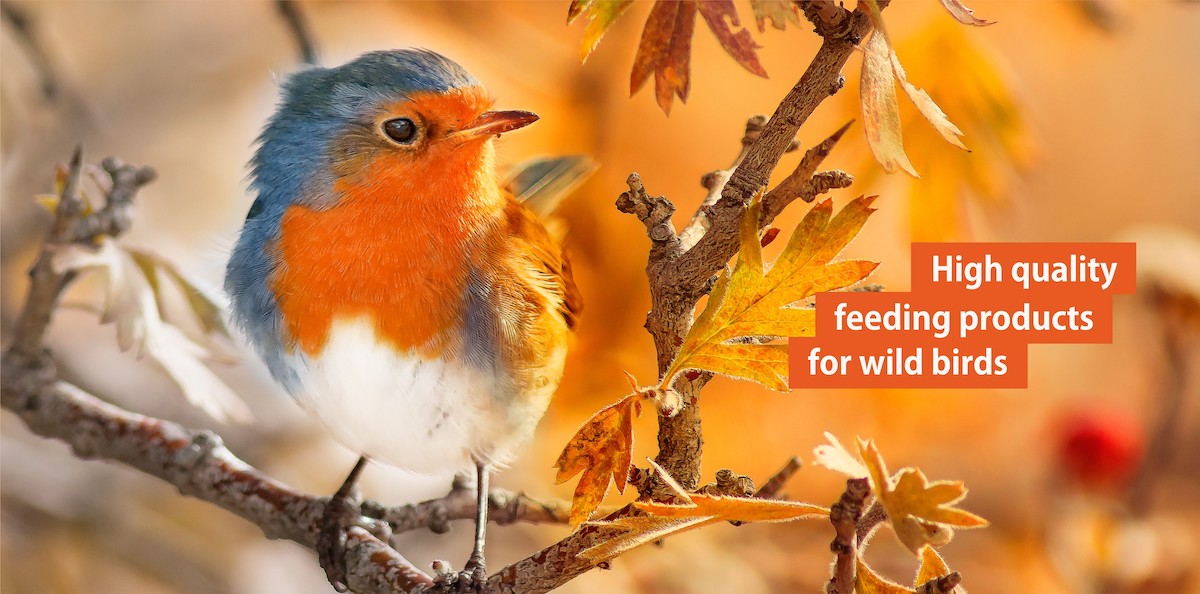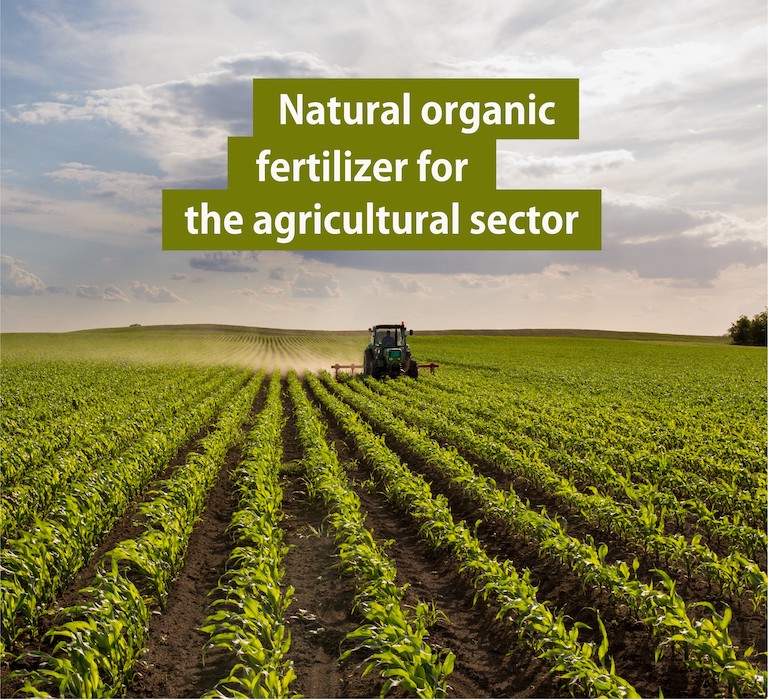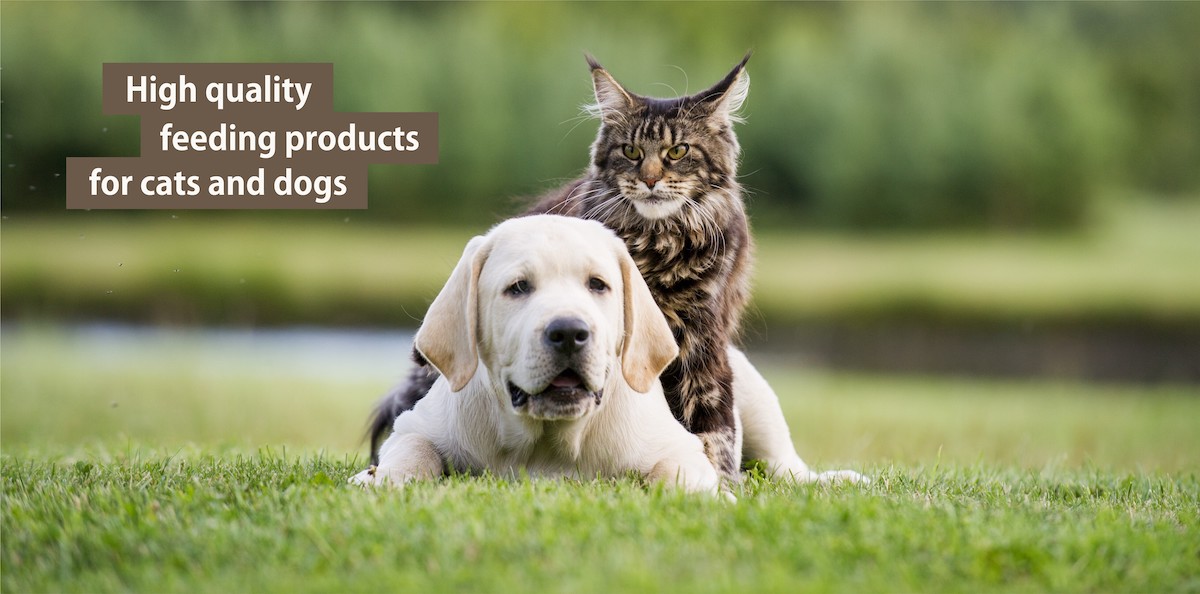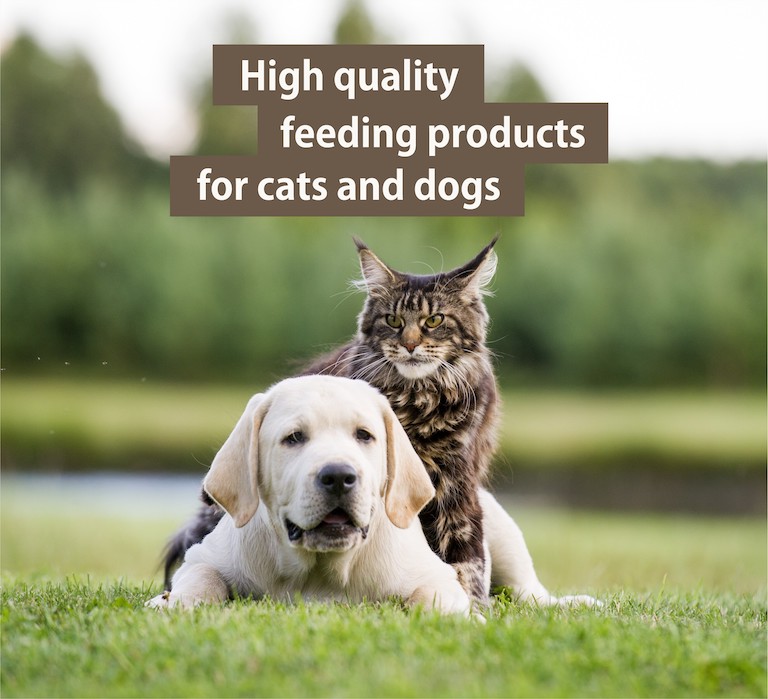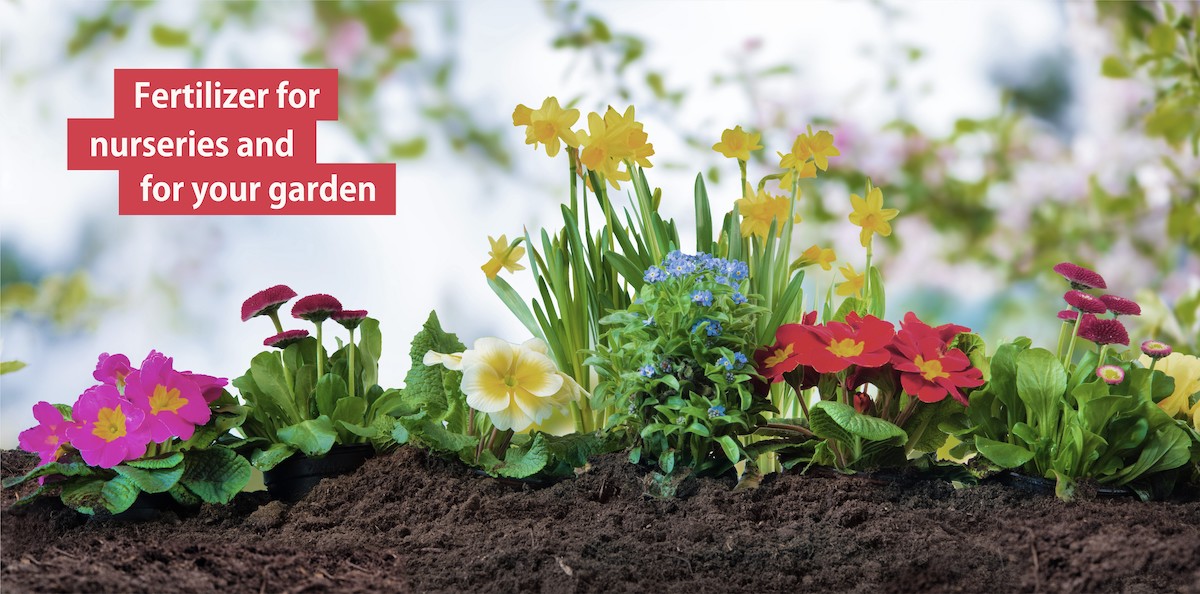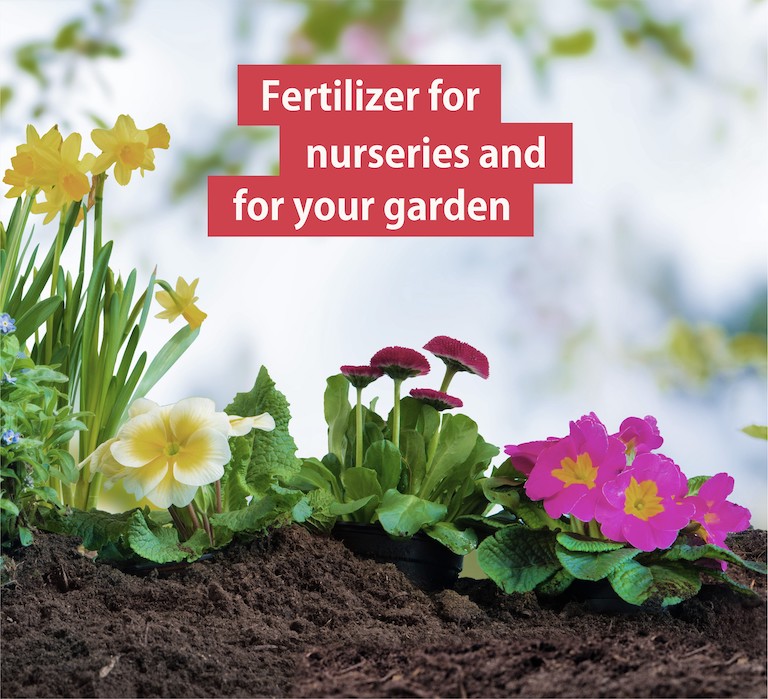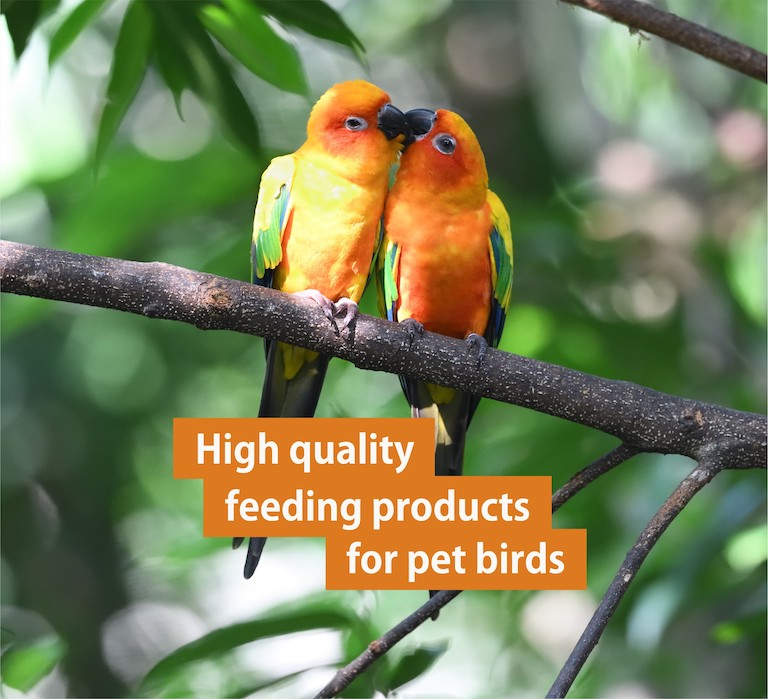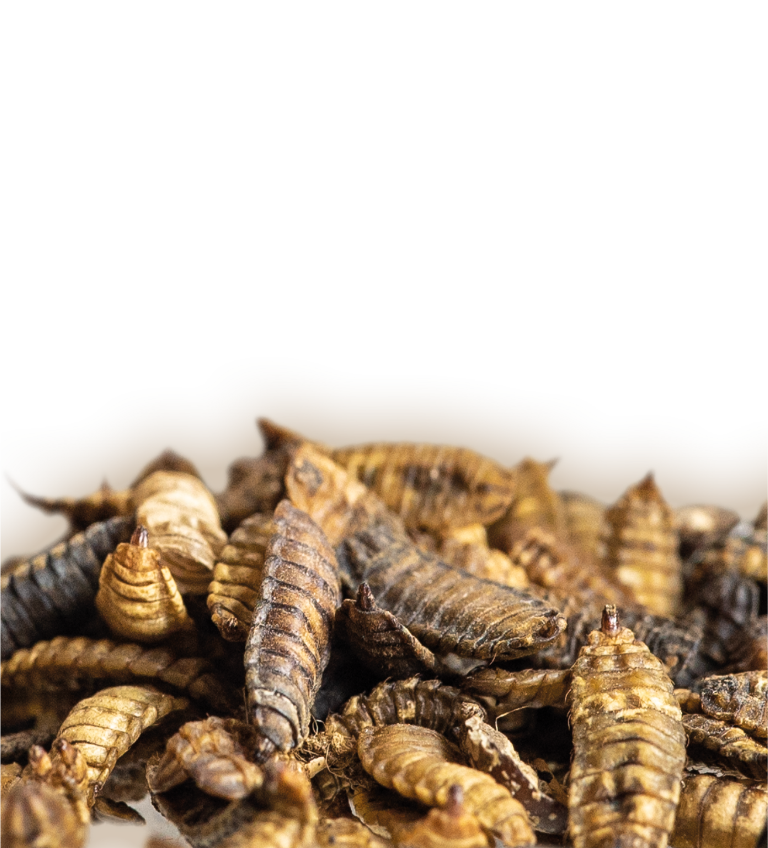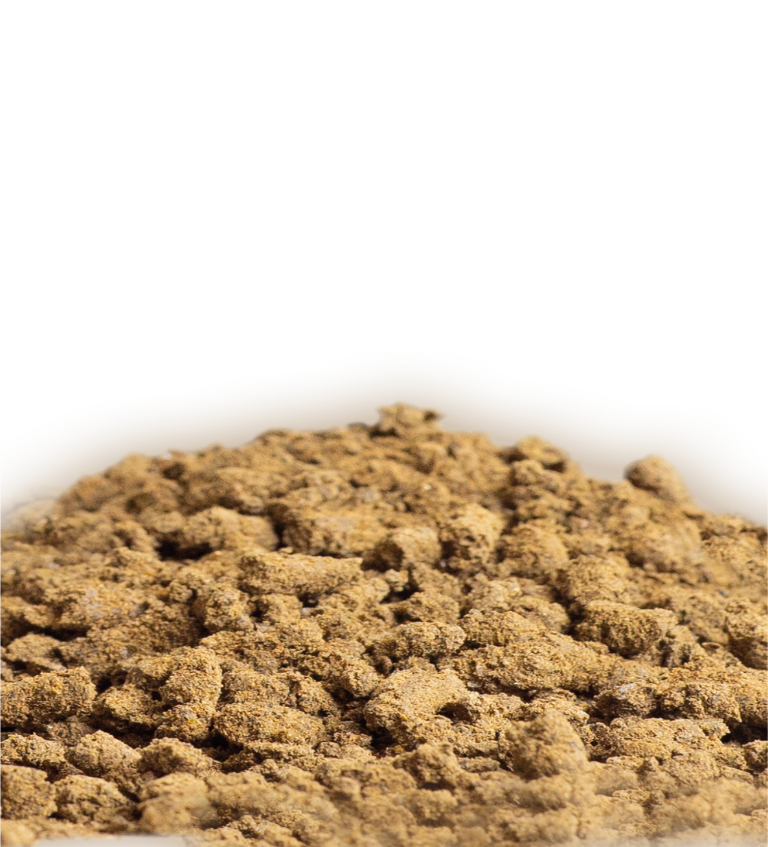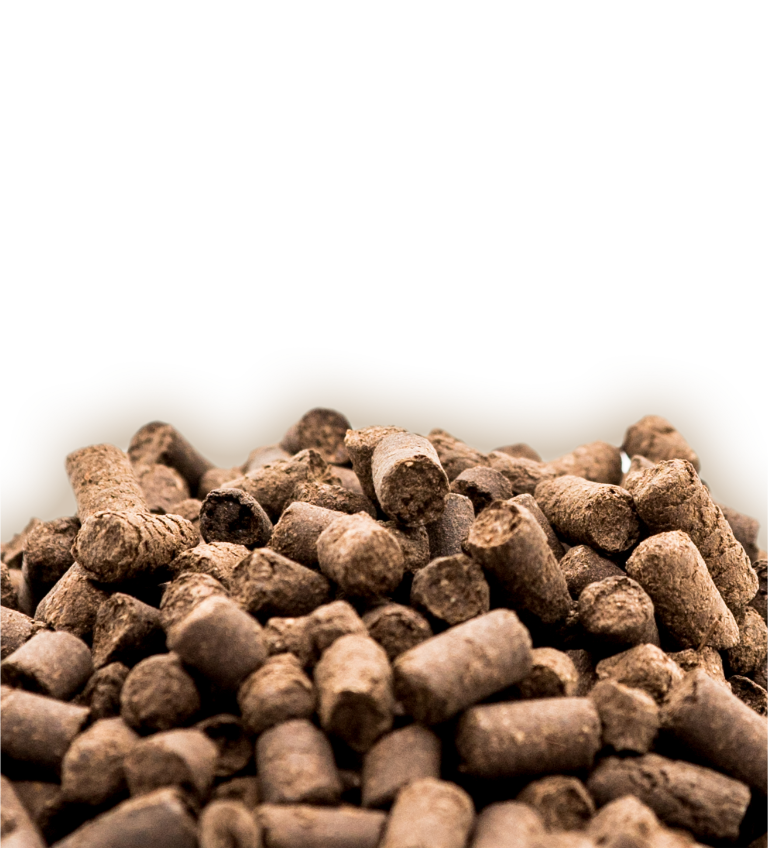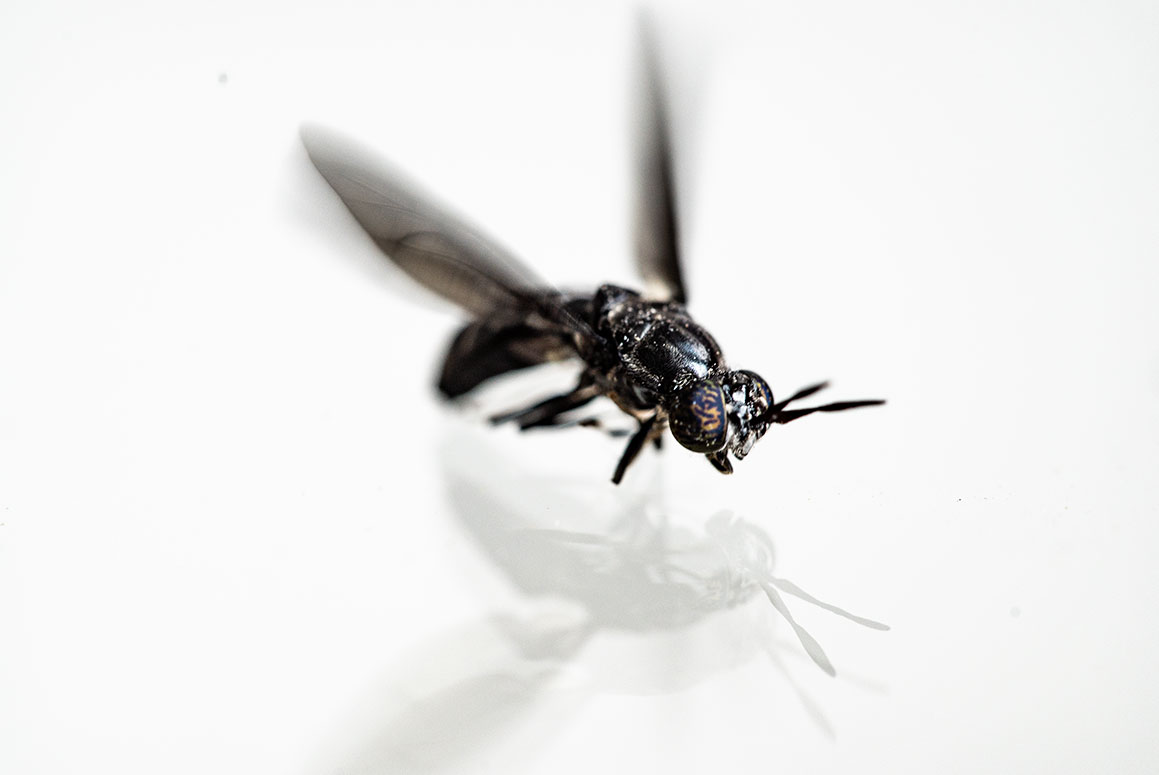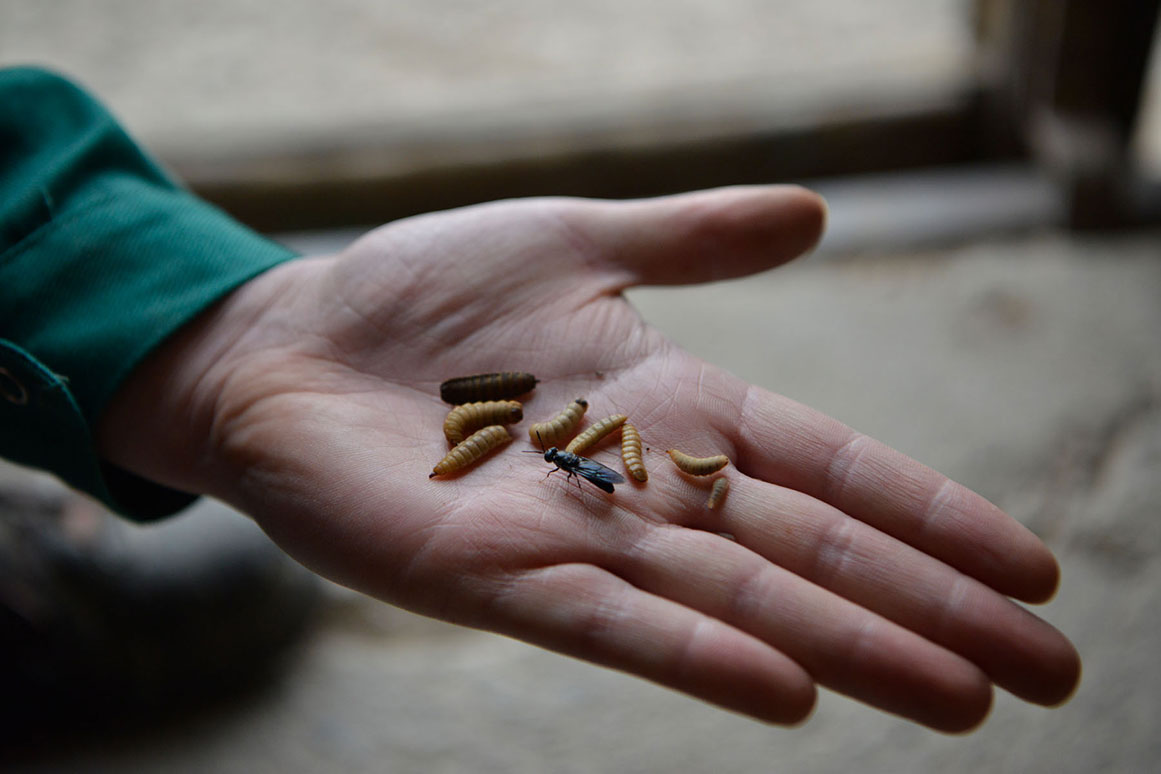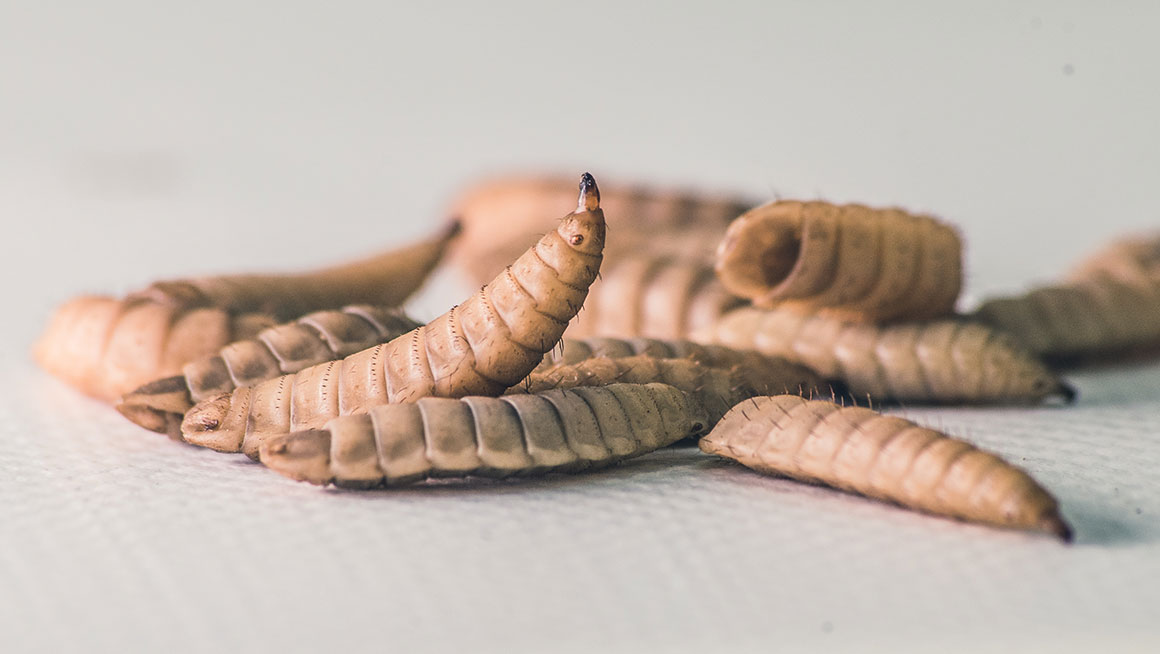Our larvae are the natural source of food for many living beings. Small animals as well as pets pleasure themselves in our nutritious and rich in protein treats.
Our high quality protein flour and our oil have versatile use cases in the animal feed industry. Additionally, our insect fat is a regional substitute for palm oil.
Our fertilizer is probably the most sustainable fertilizer worldwide. Its high concentration of organic substances has a hummus enriching effect and its nutrients stimulate growth.
madebymade makes an important contribution to a sustainable and resource saving circular economy by breeding and reproducing the black soldier fly.
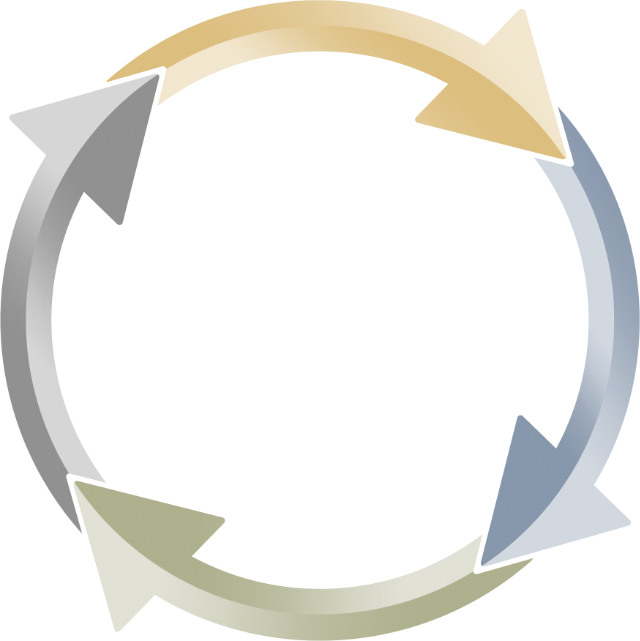
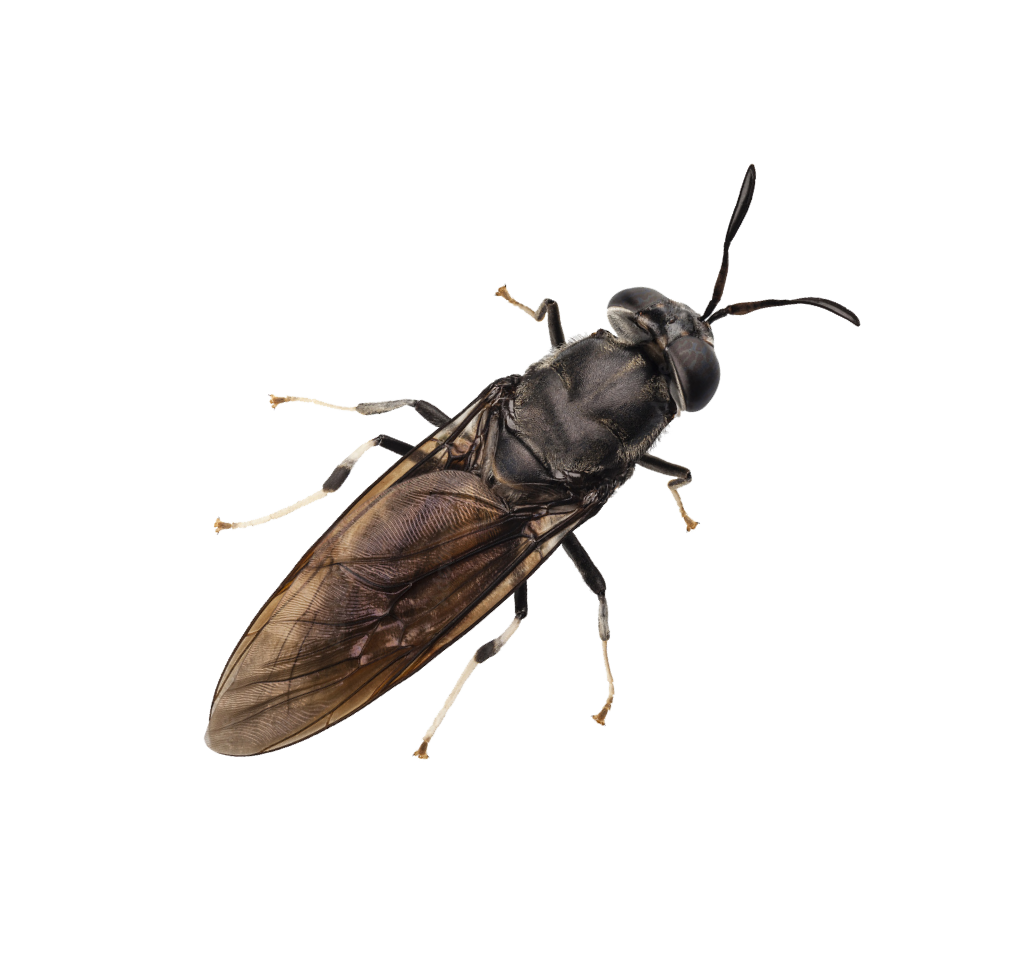
Processing of organic residues

We only use byproducts and residual materials from our region within a radius of 50km as feed for our larvae.
Production of fresh larvae

During the two-week mast, our insects transform these residue materials in high quality proteins and get dried afterwards.
Extraction of natural fertilizer

Our natural fertilizer is an unbeatable sustainable product which consists 100% of the feed of our insects.
High quality pet food refinement

By degreasing our dried larvae we get sustainable protein flour. Our insect fat is a regional substitute for palm oil.
Our achieved goals for sustainable development
We promote innovation with our highly automated insect breeding facility, because we create a completely new technology and promote know-how. We are involved in several local research projects, such as with the BioZ Bündnis, the German Biomass Research Center (DBFZ) and the University of Leipzig. Our products are extremely innovative and sustainable. We supervise final theses and promote innovation and research here as well. We strengthen the industry by realizing further fully automated industrial plants.
Our climate actions: Our daily work. We produce in a resource-conserving manner in a regional closed-loop economy. We save methane and CO2, because the organic residues, which we recycle as feed, are not fermented or burned. These come from a radius of only 50km. Here we also save resources, because our transport distances are very short in contrast to the import of conventional protein sources from far away areas.
A large part of wild-caught fish is used to produce fishmeal, which is mainly used in aquaculture. By substituting fishmeal with our regionally produced insect protein, we actively protect fish stocks and advocate for underwater biodiversity.
Our production uses very little land, because we produce according to the vertical farming principle: our shipping containers can be built upwards. Insect protein requires fewer resources to produce 1kg of protein than conventional protein sources. By substituting soy with insect protein, we avoid clearing forests to obtain arable land.

